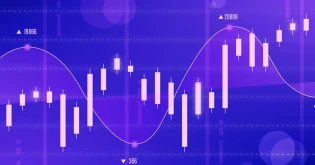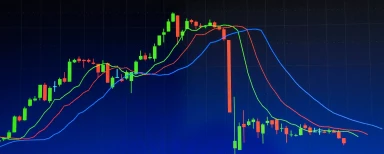-
In the world of online investing, copy trading, and social trading have emerged as powerful strategies, especially in the forex market. These methods allow both beginner and experienced investors to benefit from others' knowledge and trading decisions. However, while they share some similarities, copy trading and social trading have distinct differences.
This article will explore these methods in detail, providing a clear understanding of what they entail, their advantages, and how they differ.
What is Social Trading?
Social trading can be described as another mode of trading in that it provides the investors with an opportunity to copy or emulate the trades made by other investors, and this can best be accomplished via social trading sites. The concept is built on the fact that traders can share their information, their approaches and their news flows in a real-time manner turning it into the work of several people where each can make a decision based on the price action and analysis made by other traders.
In the forex market, social trading affords new entrants, and those who do not have time to understand complex trading strategies a chance to practice watching those who know better. Forex social trading is still a new concept for some people, so let me introduce you to it. In forex, social trading especially allows the amateur trader to mimic some or all of the actions of an expert trader along with having the opportunity to modify strategies as they come into the market.
Some of the leading social trading platforms that provide these services include; CapitalXtend. These platforms form a kind of interconnected traders’ population, sharing the information to and from the actual dealing world, and thereby renders these as an educational sales platform, which is inherently based on communities.
How Does Social Trading Work?
- Registration on a Platform: Users create an account on a social trading platform.
- Observation and Interaction: They observe traders’ profiles, track records, and strategies.
- Learning from Experts: New investors engage with experienced traders to understand various strategies.
- Replication: While replication is not as direct in social trading, some platforms offer tools that allow partial or full replication of others' trades.
- Engagement with Community: The platform provides interaction through comments, forums, and messaging to discuss market trends.
What is Copy Trading?
Social trading is just one level above that, where investors can replicate transactions from successful traders. While social trading mostly allows for learning and sharing experiences, copy trading is more limited because it gives the investors the capability to mirror the actions of specific outstanding traders fully automatically. This method has become so preferred, especially by those who wish to counteract direct trading.
Copy trading is a form of social trading where the trader called the ‘copy' or ‘clone’ trader picks a copy trading service and ‘picks his trader’. After that, the platform duplicates all the trades of the chosen trader in the account of the follower. This approach allows the followers to only receive updates of the worthy trades without having to manually execute the same trades.
How Does Copy Trading Work?
- Registration on a Copy Trading Platform: Investors sign up and choose a trader to follow.
- Selection of Trader: They can browse through various traders based on their performance, risk level, and trading strategies.
- Automatic Copying of Trades: The platform executes trades in the follower’s account based on the chosen trader’s activities.
- Risk and Capital Management: Investors can set limits on how much of their capital is allocated to the copy trading activity.
Platforms like CapitalXtend and Inveslo offer robust copy trading features, allowing users to make informed choices by viewing detailed profiles and performance stats of traders.
Differences Between Copy Trading and Social Trading
Below is a table that highlights the major differences between copy trading and social trading:
Feature
Social Trading
Copy Trading
Focus
Learning and community engagement
Automation and replication
User Involvement
High - Users observe, engage, and learn
Low - Trades are copied automatically
Skill Development
High - Focus on learning strategies
Low - Limited skill improvement
Decision Making
Users make their own trading decisions
Decision-making is handled by the copied trader
Risk Control
The user retains control over decisions
Limited control; relies on the trader followed
Primary Benefit
Education and insights
Ease and passive income potential
Key Differences Explained
1. Focus on Learning vs. Passive Income
One of the primary distinctions between social and copy trading is the focus. Social trading for beginners is a great way to dive into the forex market, as it emphasizes learning and community. Traders actively engage with one another, sharing ideas and insights that foster a collaborative environment. Conversely, copy trading is more passive, allowing followers to profit from successful trades without active involvement.
2. User Involvement and Skill Development
Social trading is suited for those people who require a long time to learn trading as they make their progress. Activity in the social trading platform as well as observing and participating in it provide learning opportunities constantly. Consequently, traders increase their level of awareness and choice-making over time. Copy trading, on the other hand, is more inclined to take advantage of other people’s knowledge thus it can be more recommended to individuals who want to make good profits out of trades without the need to analyze each trade.
3. Control Over Trades and Risk Management
Specifically, in social trading, traders are freer to manage their investments and the trading of the shares in particular. People can take a look at the methods that are used by other professionals in the trade and then choose to implement these strategies depending on their tolerance levels. On the other hand, copy trading delegate this kind of authority to the selected trader and the follower account emulates the trader’s operations.
In the words of a financial expert, it is “possible to mimic the profits that experienced traders make and use copy trading to profit from their trades without gaining such skills [ourselves]. But it involves trusting the trader with actual decisions which can sometimes be dangerous.
Advantages and Disadvantages of Copy Trading and Social Trading
Advantages of Social Trading
- Learning Opportunity: Social trading is an excellent resource for new traders to gain knowledge and insights.
- Community Support: Being part of a community allows traders to exchange ideas and insights.
- Flexibility: Traders have the freedom to make their own choices based on the strategies observed.
Disadvantages of Social Trading
- Time-Intensive: Social trading requires continuous engagement and observation.
- High User Involvement: To benefit from social trading, users must actively participate in discussions and analyses.
Advantages of Copy Trading
- Automated Process: Once a trader is chosen, trades are automatically copied.
- No Skill Requirement: It’s suitable for investors who don’t have extensive trading knowledge.
- Potential for Passive Income: Copy trading provides a convenient way to potentially profit without extensive involvement.
Disadvantages of Copy Trading
- Limited Control: Investors have less control over trades as they rely on the selected trader’s actions.
- Dependency on Trader's Success: The follower’s success is directly tied to the performance of the copied trader, which introduces risk.
Choosing Between Copy Trading and Social Trading
While choosing between the two options for investment, the investor should weigh his objectives, his ability to handle risks, and the level of his participation. What is social trading, offers a more easy and is even more effective for those that would wish to understand the concept behind every trade. Thus, like passive income seekers or individuals who do not have the time to analyze trades can find how to copy trading work that has its principles aligned well with their goals.
Another trader, who is very experienced in trading once said that social and copy trading should be compared based on your trading style. If you are here for education, then social trading is for you. But if your main aim is to automate your travels and bring more convenience into your life – copy trading will be more helpful to you”.
Conclusion
It is important for all new traders who are willing to trade in the forex market to distinguish between the two concepts, copy trading, and social trading. Each of the two methods has its advantages as it caters to the two different trader categories. The platform’s key is learning from others, which makes it useful for people who would like to gain more knowledge on trading. On the other hand, copy trading is a passive investment solution that will be attractive to investors who wish to invest with little interference from mechanics.
Whether you’re a beginner or an experienced trader, the decision to choose between social and copy trading should be based on your goals, experience level, and desired involvement in the trading process.


















































